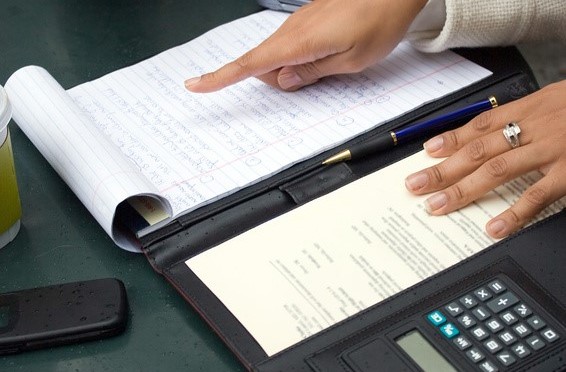 Ever since the mortgage rule changes that went into effect in 2009, a small but ever growing title wave has been building. Individuals who lost their jobs during the downtrend of the market and decided to go back to school to earn a different degree, or updating their personal education, to put them into a better position for a better paying job. They are not only facing an ever tighter job market but also have put themselves financially behind the 8 ball when it comes to being able to qualify for a mortgage.
Ever since the mortgage rule changes that went into effect in 2009, a small but ever growing title wave has been building. Individuals who lost their jobs during the downtrend of the market and decided to go back to school to earn a different degree, or updating their personal education, to put them into a better position for a better paying job. They are not only facing an ever tighter job market but also have put themselves financially behind the 8 ball when it comes to being able to qualify for a mortgage.
Tag Archives: leverage property
Settles Report
To make things simpler we are focusing only on three Counties that make up the central Indiana BLC for our report for the time between July the 7th and July the 13th. When you are looking for information on additional counties that are part of the Central Indiana MLS contact the Settles Team.
Marion County had the most properties listed during that week totaling 404. Hamilton County had 203 properties that where made available for sale and Johnson County had 70 properties that were made available to the public.
For Marion County Indiana, Washington township was the area where most of the homes where made available for sale with 67 new listings. Lawrence Township was not far behind with 62 new available properties. Average list price for Washington Township was $245,488 and the average for Lawrence Township was $205,026.
In Marion County 185 Properties had an accepted offer (in escrow) and 230 closed during that same time. Washington Township had the most closings totaling 41 with an average sold price of $223,859. That was about 5.5% below the asking price.
Lawrence and Perry Townships both had 30 closings each week. Perry Township had an average day on the market of 66 days and Lawrence Township had an average of 62 days on the market. The average sales price for Lawrence Township was $184,741 which was 2% below the original asking price and Perry Township had an average sold price of $116,282 which was 4% below the original asking price.
Johnson county Indiana also had a busy week. Not as busy as Marion county, but Johnson County was not sitting still. White River Township was the listing leader with 27 new available properties and Pleasant Township was not that far behind with 21. The average list price for White River Township was $249,248 and Pleasant Township was $164,333.
37 properties in Johnson County had an accepted (in escrow) offer and 45 closings occurred that same week. Pleasant Township had the most closings totaling 20, and White River Township during that same week had 14 closings. Pleasant Township had an average sales price of $120,696 which was 3% below the original asking price and White River Township had an average sold price of $260,316 which was 6% below the original asking price during the same time.
Hamilton County Indiana had not been lazy during that week. Clay Township had the most listings that were made available during that week totaling 58, and with 46, Fall Creek Township was right up there as well. The average list price for the Clay Township was $390,620 and Fall Creek Township was $ 315,685.
111 properties in Hamilton County had an accepted (in escrow) offer and 140 closings during the same week. Clay Township had the most closings totaling 38, and Fall Creek Township during that same week had 28 closings. Clay Township had an average sales price of $379,146 which was 4% below the original asking price and White River Township had an average sold price of $260,316 which was 2% below the original asking price during the same time.
FHA flipping rule waiver still in affect
I am finding a lot of confusion and different interpretations when it comes to flipping homes using HUD/FHA loans. The last time I heard and read on the Federal Registrar website, was that HUD still has a waiver in place until the end of December 2014 that is applicable to all single family properties being resold after the 90-day holding period after acquisition.
There are some stipulations that are still in place even with the flipping rule waiver.
- The property was openly marketed and was available for any type of buyer.
- The property was not repeatedly flipped over the last 12 months
- The transition needs to be an arms-lengths transition.
When a property is marketed for more than 20% of the current sellers purchase price there will be additional stipulations before the property can close with an FHA loan.
- Property will need a second appraisal and the buyer is not allowed to pay for the additional appraisal. It has to be paid for by the investor.
- Investor has to justify and prove the value of the increase in pricing by the additional appraisal and supporting documents.
- An FHA approved inspector has to inspect the property and any needed repairs or updates need to be completed prior to closing by the investor and those repairs have to satisfy the FHA inspector.
From what I can see on my end, you still can flip a property within the 90 day period and have a FHA buyer. Just when the property is priced 20% above your original purchase price you have to jump though some extra hoops to get the property approved for the FHA.
Attached is the FHA flipping waiver ruling for your review.
When you have any questions about this or any additional Real Estate questions, feel free to contact the Settles Team.
INVESTING IN REAL ESTATE BY USING OTHER PEOPLE’S MONEY
My preferred way to invest in real estate is cash. Many investors do not have that option or they do not have enough cash on hand to finance their investment. For investors like that there are other options out there to make their real estate investment dreams happen.
I am sure you have heard the saying ”using other people’s money” to invest in real estate and that is what I am talking about. Many of you would think of using the banks or credit unions money but creative financing has been a long time a tool in the investor’s tool box. There are other ways out there to finance your investment dreams.
Keep in mind that any form of investing comes with risk and before you begin investing you should educate yourself about the different forms of financing. With any real estate transaction it is also advised to contact an experienced and competent real estate attorney and CPA.
When you have found a property to invest in, and you have already found a buyer for the property, before you closed on it you might consider doing a double closing before you get a loan. During the double closing you buy and sell the property at the same time.
 One of the options could be seller financing. During the closing not all of the money is collected that is due to the seller. The seller is taking a promissory note and the title is still transferred to the buyer.
One of the options could be seller financing. During the closing not all of the money is collected that is due to the seller. The seller is taking a promissory note and the title is still transferred to the buyer.
Another option is to take over the seller mortgage. Where the buyer agrees in writing to make the sellers mortgage payment directly to the seller’s mortgage servicer. The mortgage servicer has to agree to the arrangement.
You also can use private money to finance your investment. With all of the restrictions that are put on a mortgage servicer for them to be able to write loans, a source of private money would come directly from wealthy investors who are looking for another way to invest their money other than a bank or the stock market.
Another form of investing is the lease option. The key to this form of financing is to already have a second lessee lined up before you finalize your original lease option agreement. This will keep your money out of the deal. How it works is that you lease the property with an option and you turn around and lease the property to another potential buyer. Both of you have the option to purchase the property for a set price within a certain amount of time. Some investors also call this having a note.
When you already have other investment property you might be able to leverage the other property to get a loan to purchase your investments. It has been very popular in the past and not so much in today’s market.
When you have any question about investing in real estate feel free to contact the Settles Team



